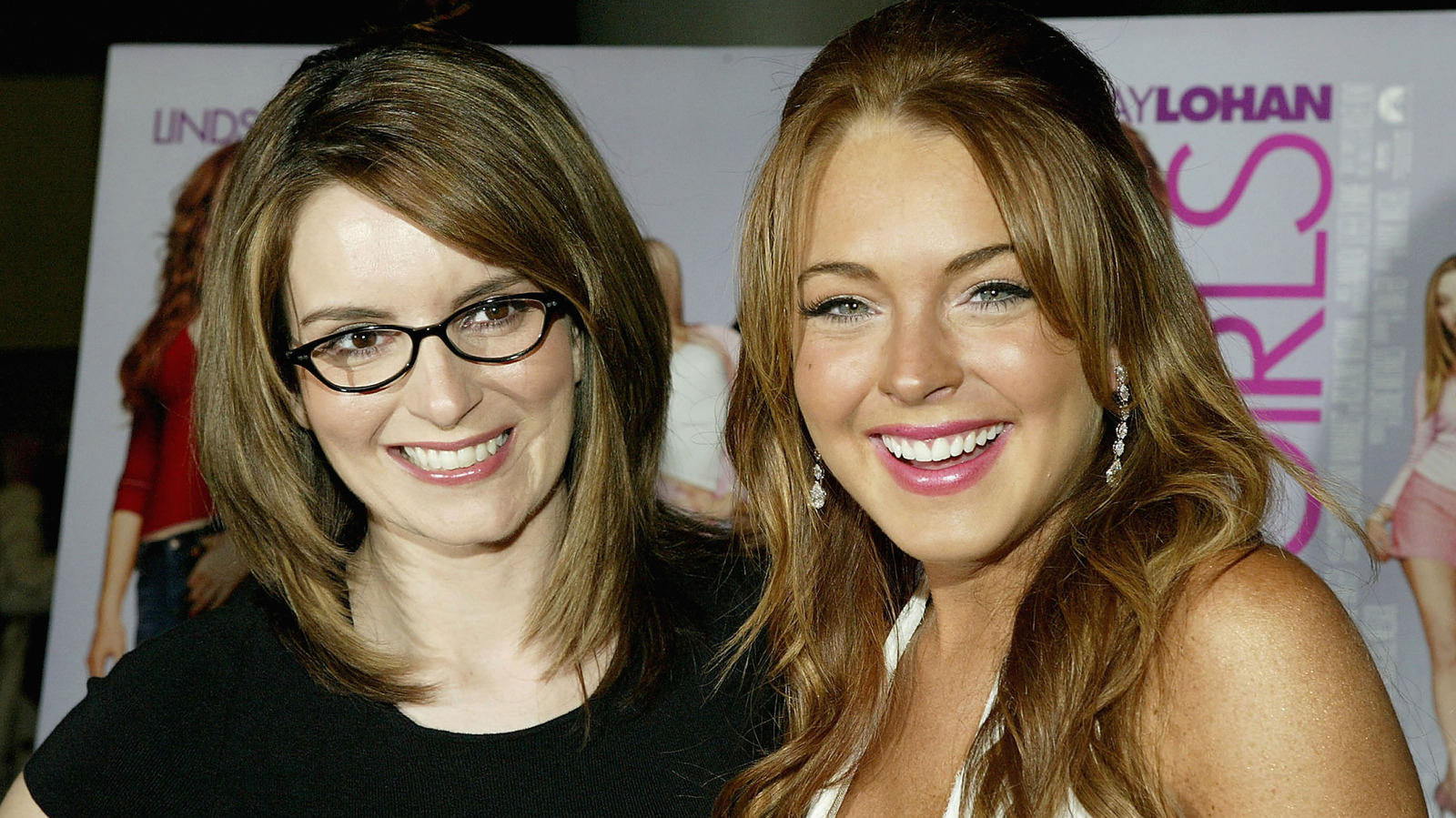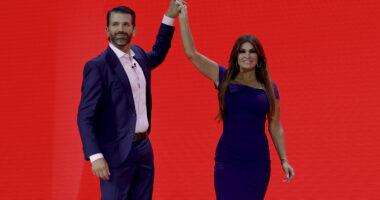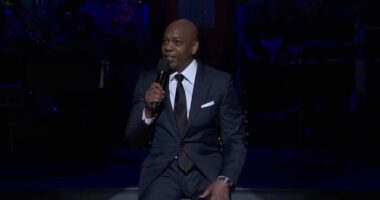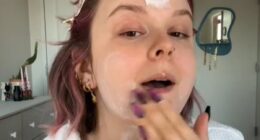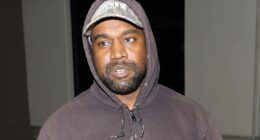The following article contains mention of sexual harassment.
Despite being one of the most beloved and rumor-producing romantic comedies of the 2000s, not all things behind the scenes of the 2004 film “Mean Girls” were “grool.” From unexpected casting decisions and rating struggles to its stars even experiencing serious career trajectory changes as a result of fame, the heavily quotable movie has a backstory as layered as the pages of the infamous Burn Book. “It’s not a regular movie,” star Jonathan Bennett, who portrayed Aaron Samuels, shared with Salon. “It’s part of people’s lives. They speak it, they talk it and they have parties for it. They dress up like it for Halloween. The lines in ‘Mean Girls’ are in people’s everyday vocabulary now.” The iconic film and its namesake stars have finally brought to light some of these stories that helped define the world and the impact that “Mean Girls” has created.
Lindsay Lohan wanted to play the villain
Lindsay Lohan’s role as heroine Cady Heron cemented her as one of the most popular celebrities in the early-to-mid 2000s. Initially, it wasn’t the homeschooled sweetheart whom Lohan was aiming to play. When the film’s director, Mark Waters, approached Lohan to gauge her interest in “Mean Girls,” the “Freaky Friday” star was initially interested in iconic bad girl Regina George. Waters had been at the helm of another big Lohan vehicle, “Freaky Friday,” and Lohan felt it was time to break out of her teeny bopper shell a bit. “I was still 17 years old and I wanted to be the cool girl on set,” she revealed to Entertainment Weekly in 2014.
But Waters knew deep down that the star was better suited for a character that young audiences could root for. It took some convincing from both the director and the studio, but eventually, Lohan settled into the role of Cady, and the rest was history. “Lindsay kind of begrudgingly said, ‘Okay, I guess I’ll play the lead,'” Waters told Vulture in 2014. “At least I get to have more lines.”
Jonathan Bennett wasn’t the first choice for hunky Aaron Samuels
Hallmark star Jonathan Bennett first made a name for himself as Aaron Samuels, aka the guy whose “hair looks sexy pushed back” in “Mean Girls.” However, he wasn’t the initial choice for the role that would go on to change his career. According to Daniel Franzese, who played the pop-singing Damien, there was another, more famous actor who was originally cast as Aaron. But after a disastrous first table read, that unnamed actor was fired. “This other actor hadn’t shaved and he didn’t take his hat off; he was playing it really cool,” Franzese revealed to Cosmopolitan. “People kept coming over to him like, ‘You know, you should really take your hat off.'”
Fate intervened and Bennett booked the role, something that he admits has shaped his daily life even after more than two decades. He even has gotten used to hearing about his character from anyone who passes by him. “It would be weird to leave the house and have someone not say something,” he said to Teen Vogue. “It’s just part of my life, and I’m honored to be part of people’s lives.”
Several cast members held back coming out publicly for years
Years after the film’s release, three of the main male cast members of “Mean Girls” have come forward about their sexualities. Daniel Franzese, who played the flamboyant Damien, first came out in 2014 upon the film’s ten-year anniversary. He credits a special fan letter with encouraging him to share his truth with the world, even after he was once subjected to conversion therapy as a kid. He also found solace with his co-star Jonathan Bennett, aka Aaron Samuels, who also came out of the closet years after the film’s premiere.
Rajiv Surendra, who played rapping mathlete Kevin Gnapoor, shared his sexuality within his memoir “The Elephants in My Backyard” and an accompanying Washington Post article. While none of the actors were out publicly at the time of filming, it is still special to the cast that their fellow actors found the courage to come out publicly and, furthermore, add to the legacy of the representation that the movie championed. “The only way I could describe it is if you went to high school with a couple of guys and afterwards, you all found out you were gay,” Franzese shared with PRIDE. “I think it only makes the movie more pink!”
Rachel McAdams was told she was too old for a role
During her initial audition for “Mean Girls,” Rachel McAdams was vying for the role of Cady Heron. But in the final stages, it was director Mark Waters who moved the film chess pieces around to find his perfect cast — which didn’t include McAdams as the heroine. In fact, Waters was blunt with the star and shared that she was “too old” to play the ingenue role.
This didn’t mean curtains for McAdams, though. As she screen-tested as villain Regina George across from Lindsay Lohan’s Cady Heron, the friend vs. foe chemistry was off the charts. “When Lindsay was acting with Rachel, she got very shy, because Rachel was older and a very accomplished actress,” Waters revealed to Vulture. “Lindsay kind of got nervous around her, and I thought that, more than anything, was going to be the deciding factor.” McAdams was eventually cast as Regina, and with Lohan as Cady, the two became timeless film frenemies that would last for years to come, despite McAdams herself not being close with her castmates. Co-star Amanda Seyfried was also seriously considered for the role of Regina but was eventually cast as the ditzy Karen Smith instead — making this one of the first major roles she lost out on to another star.
Filmmakers had to fight to prevent an R rating
While readying the film to be released in May 2004, director Mark Waters had to fight to keep the film’s PG-13 rating. Because of some of the film’s more risqué jokes, many of which are contained within the fictitious Burn Book, the Motion Picture Association (MPAA) threatened to make the film R-rated if script changes weren’t made. Waters and his team acquiesced on some of the lines — for example, the line about Amber D’Alessio and a hot dog originally involved a much more sexual act — and ironically found the revised jokes to be more memorable. “That’s the thing we found: When you’re trying to make a joke obey the rules and not use any bad words, it can actually become seamier, even,” Waters revealed to Vulture.
However, there was one joke that Waters was adamant about keeping. When it came to a line about one character’s “wide-set vagina,” the director ensured that it remained so as to prevent any overt sexism from the powers that be. He even cited another recent PG-13 film that showed an erection on screen as a case in point for being able to leave their (arguably tamer) line in the film. “We told [MPAA], ‘You’re only saying this because it’s a girl, and she’s talking about a part of her anatomy,'” Waters shared with Vulture. “‘There’s no sexual context whatsoever, and to say this is restrictive to an audience of girls is demeaning to all women.’ And they eventually had to back down.”
Lindsay Lohan admitted the Mean Girls success contributed to her public downfall
Lindsay Lohan has been chased by her past troubles for a large chunk of her career, and in 2013, she affirmed that the massive success she achieved after “Mean Girls” was released contributed to those troubles. The 2004 film generated more than $130 million at the global box office, and in the years that followed, Lohan spent more time in both rehab and the paparazzi’s camera lens than she did on film sets.
In 2013, she sat down with Oprah Winfrey to discuss her new views on life post-rehabilitation, and she credited the film with being the impetus for her very public downfall. From a lack of proper guidance to reckless discretionary spending, her then $7 million per picture price tag was fading fast. “I was living at a hotel and I had an apartment,” she revealed in the interview (via ScreenRant). “I wasn’t really being guided. No-one was [there].”
Amanda Seyfried’s character caused unwanted sexual harassment
After being cast as the ditzy Karen Smith, Amanda Seyfried found herself receiving heightened fame and attention. But not all of that attention was warranted and often crossed into harassment. In the film, Seyfried’s character claims that she can predict the weather through her breasts. In real life, the actor has experienced men coming up to her either reenacting the scene or even asking her to “predict the weather.” “I always felt really grossed out by that,” she admitted to Marie Claire. “I was like 18-years-old. It was just gross.”
Though she didn’t feel she was at the level of fame as some of her co-stars, she did sympathize with them in terms of the (often unwanted) attention they received following the release of the film. “I think being really famous [young] must really f***ing suck,” she continued to Marie Claire. “It must make you feel completely unsafe in the world.”
If you or anyone you know has been a victim of sexual assault, help is available. Visit the Rape, Abuse & Incest National Network website or contact RAINN’s National Helpline at 1-800-656-HOPE (4673).
Lizzy Caplan admitted to being typecast after her Mean Girls role
After endearing herself to millions as the laugh-out-loud goth Janis Ian, actor Lizzy Caplan found herself in a tough spot in terms of furthering her career. For years, she had trouble booking roles that weren’t teen-centered dramas despite wanting to find more independent and intriguing projects to work on. She even dyed her hair and got a spray tan in order to stay relevant and in the mix during casting calls. While she eventually found more success in series like “Masters of Sex,” Caplan feels that the shift in casting norms would have changed her post-“Mean Girls” world. “I think 1736342248 that character would not be so pushed aside for future roles,” she shared with The Independent. “There’d be more opportunities for somebody playing the weird goth girl in a movie than there was back then.”
Continually, she also sees the difference in role genres that young actors nowadays are able to balance when in casting rooms. “Those archetypes felt a lot stronger back then, and I feel like there’s a shift now,” she continued to The Independent.
Tina Fey made script revisions before making the movie musical
Even on the creative side, parts of “Mean Girls” faced backlash post-release. Tina Fey, who wrote the original screenplay and, despite normally staying behind the screen, starred as teacher Ms. Norbury, has admitted that some of the jokes included in the 2004 film did not age well in current society. Some of the jokes were so egregious that she even altered or removed them entirely when writing the script for the 2024 movie musical film. “You don’t poke in the way that you used to poke,” she told The New York Times. “Even if your intention was always the same, it’s just not how you do it anymore.”
Some of the lines that she changed involved removing derogatory sexual language that described women, including changing the character of Dawn Schweitzer’s description in the legendary Burn Book as “horny shrimp” instead of “fat virgin.” “I know that even Regina [George] would know what wouldn’t fly,” she admitted to The New York Times. “She’s going to find a way to inflict pain on people, but she’s not going to get herself in trouble.”

